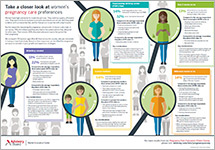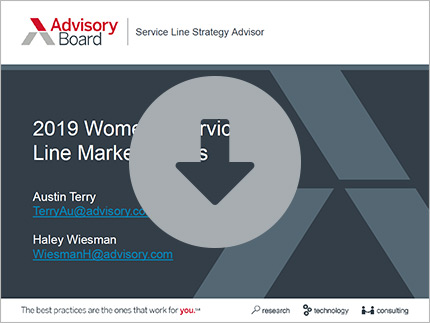Auto logout in seconds.
Continue LogoutEditor's note: This popular story from the Daily Briefing's archives was republished on March 19, 2020.
Do the benefits of breastfeeding live up to the hype? Is it better to let your baby "cry it out"? Should one parent stay at home? Parenting is filled with decisions like these and hype surrounding them, so Emily Oster, an economics professor at Brown University, in the New York Times examined the research to determine what the data really say about some of the biggest parenting decisions.
Cheat sheets: Evidence-based medicine 101
Are the benefits of breastfeeding overstated?
There are plenty of emphatic claims about the benefits of breastfeeding, Oster writes. The practice, which can be very difficult, is touted for boosting IQ, lowering the risk of obesity, and reducing the risk of asthma.
But while research has found breastfeeding comes with benefits, the results are more muted than claims might suggest, Oster reports. For example, a study from the Promotion of Breastfeeding Intervention in the 1990s found the most well-supported benefits of breastfeeding are lower risk of gastrointestinal infections, rashes, and eczema early in the child's life. Specifically, the researchers found that 9% of babies who were breastfed experienced at least one less episode of diarrhea compared with 13% of babies who were not breastfed.
However, the study found no differences between breastfed babies and non-breastfed babies in terms of allergies, asthma, obesity, or respiratory infections, Oster writes.
So why do so many people purport breastfeeding to be associated with a variety of benefits? Because there are a number of observational studies that make those associations, Oster writes. For example, one study of almost 70,000 Danish mothers and their children found that breastfeeding a baby for more than six months reduced their risk of developing an ear infection from 7% to 5%.
Should you let your baby 'cry it out'?
Sleep training, otherwise known as the "cry it out" technique, refers to a practice in which the parent leaves a baby in its crib by itself at the start of the night and allows the baby to fall back asleep on its own if it wakes up during the night.
Many pediatricians recommend this practice, but some parents oppose it, worrying that it could cause the baby to feel abandoned and consequently have trouble forming attachments to parents and others, Oster writes.
For example, Oster cites one study that found that sleep training reduced stress levels for mothers but did not ease stress for infants. The researchers suggested the findings meant the mothers and children were losing their emotional connection with each other.
However, Oster writes that this finding could be interpreted differently. "Why not interpret the evidence to say that cry-it-out relaxes parents without hurting children?" she writes.
In fact, Oster writes a body of research refutes these concerns, Oster writes. For example, one study from Australia observed 328 mothers whose seven-month-old babies were having difficulties sleeping. About half of those mothers sleep trained their infants while the other half did not. The researchers found that, in the short-term, sleep training had noticeable benefits, such as improving sleep for children and lower parental depression, Oster writes.
Those same researchers then did a follow-up study and evaluated the children five years later. They found there was no difference between the sleep-trained children and those who were not sleep trained in any outcome, including emotional stability, attachment to their parents, or closeness to their parents.
All else equal, Oster writes, "[E]very family is different, … [b]ut if you do want to sleep train, you should not feel shame or discomfort about that decision."
Should someone stay at home?
Whether to be a stay-at-home parent or a working parent is another difficult decision parents face, and unfortunately, there isn't much reliable data on the subject, Oster writes.
While there are studies on the subject, it's difficult to separate a family's circumstances from their employment situation, Oster writes. As a result, it's hard to learn anything from these studies.
For example, one 2008 meta-analysis found that children in households with one full-time working parent and one part-time working parent performed the best in school compared with children in families with one stay-at-home parent and children in families with two working parents.
However, this is likely the result of the differences between families rather than the parents' employment decisions, Oster writes, as there's not really any clear evidence supporting the idea that being a stay-at-home parent has any effect on child outcomes.
"Parenting is full of decisions, nearly all of which can be agonized over," Oster writes. "You can and should learn about the risks and benefits of your parenting choices, but in the end you have to also think about your family preferences—about what works for you" (Oster, New York Times, 4/19).
Cheat sheets: Evidence-based medicine 101
Been awhile since your last statistics class? It can be difficult to judge the quality of studies, the significance of data, or the importance of new findings when you don't know the basics.
Download our cheat sheets to get a quick, one-page refresher on some of the foundational components of evidence-based medicine.
Don't miss out on the latest Advisory Board insights
Create your free account to access 1 resource, including the latest research and webinars.
Want access without creating an account?
You have 1 free members-only resource remaining this month.
1 free members-only resources remaining
1 free members-only resources remaining
You've reached your limit of free insights
Become a member to access all of Advisory Board's resources, events, and experts
Never miss out on the latest innovative health care content tailored to you.
Benefits include:
You've reached your limit of free insights
Become a member to access all of Advisory Board's resources, events, and experts
Never miss out on the latest innovative health care content tailored to you.
Benefits include:
This content is available through your Curated Research partnership with Advisory Board. Click on ‘view this resource’ to read the full piece
Email ask@advisory.com to learn more
Click on ‘Become a Member’ to learn about the benefits of a Full-Access partnership with Advisory Board
Never miss out on the latest innovative health care content tailored to you.
Benefits Include:
This is for members only. Learn more.
Click on ‘Become a Member’ to learn about the benefits of a Full-Access partnership with Advisory Board
Never miss out on the latest innovative health care content tailored to you.


